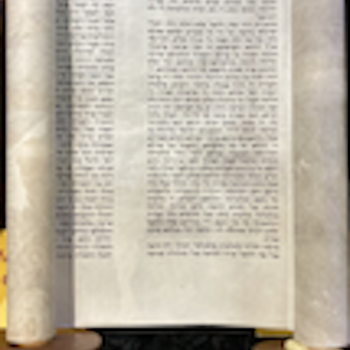At the heart of the Protestant Reformation was the affirmation "ecclesia semper reformands, semper reformanda": "the church is always reformed, always reforming." While their theological children often held onto the relics of past doctrine, preferring the stability of human constructs to the dynamic movements of the Living God, faithfulness to the Reformation is a matter of spirit and experience, and willingness to constantly share our faith in new and creative ways.
Reformation faith is forward, rather than backward-looking, evolving rather than static, at home in this world, rather than in a previous age or a heavenly realm.
As they sought to articulate their reforming faith, the Reformers affirmed "five solas"—sola scriptura, sola fides, sola gratia, solus Christus, soli Deo Gloria. These "solas" expressed the contours of Reformation faith while not narrowly defining its meaning. To be faithful to the Reformed spirit, each of these must be constantly updated to respond to God's call in a constantly changing universe. In the following paragraphs, I propose to describe what these "solas" might mean in a global, postmodern, scientific, and pluralistic age. In building upon and going beyond the original insights of the Reformers, we are most faithful to the spirit from which the Reformation emerged.
Sola Scriptura. Scripture alone is the ultimate source of authority in the Christian life and the life of the church. Narrowly defined, this leads to an unimaginative, backward-looking, culture-hating, and intolerant literalism quite different than what the Reformers intended. Scripture is central to faith, but it can be never become an idol. We cannot, as Robert McAffee Brown asserted, substitute paper infallibility for papal infallibility. We cannot worship words or let them get in the way of the Living Word, incarnate in Jesus Christ. Just as God's mercies are new every morning, faithfulness to scripture means challenging scripture when it deviates from the God's graceful presence. Luther had doubts about the Epistle of James, describing it as "epistle of straw." While Luther may have missed the point of James as a text joining works with grace, not a works-centered text, Luther clearly saw scripture as relative and subject to reformation, if need be.
To be faithful to scripture, today's Christians must see it as a living and evolving document, variable in revelation from page to page. We can no longer live comfortably with passages that promote violence and the objectification of women, "non-believers," and the GLBT community. We must, with Luther and other Reformers, look for the word of grace within the words of scripture. A graceful reading of scripture opens us to experiencing divine wisdom in science, medicine, literature, and non-Christian faiths. Scripture is always an open door, and never a closed closet.
Sola Fides. Though faith always has an "in spite of" element, faith is not affirming things we know to be untrue scientifically, ethically, or theologically. As Luther asserted, faith is a lively, reckless confidence in the grace of God. Faith involves trust and relationship, grounded in experience, study, and community. Faith is not strict adherence to doctrine, with death and damnation awaiting all who doubt or disbelieve; rather, faith involves openness to experiencing the divine in all its manifestations, even the unfamiliar and unexpected.
Today, faith involves experiencing and trusting God's wisdom in the witness of persons of other faith traditions, seekers, agnostics, and atheists. It involves openness to following divine guidance wherever it takes us, and even beyond the precincts of Christianity. It is an act of faith to affirm the truths of Christianity while embracing divine wisdom broadcast in other religious traditions. Our truths do not depend on their falsehoods, but an ongoing trust in God's evolving grace and wisdom reflected in human finitude and imperfection. In the spirit of author Madeleine L'Engle, when she was asked if she believed in God without any doubts, faith asserts "I believe in God with all my doubts." Thomas, not the fundamentalist, is the true knight of faith, who is able to live with doubt while still seeking greater insights into the truth.
Sola Gratia. It's all grace. We receive God's love regardless of our current spiritual or ethical state. Though unmerited, grace is not "in spite of" of who we are, but "because of" who God is. Grace does not diminish the human enterprise, but invites us to live abundantly, fully, and creatively. Though grace is universal, it is not unilateral or uniform. Grace works uniquely within each person. Grace does not depend on our works; we receive it, rather than earn it. Still, the shape of grace is personal and depends on our relationship to God and one another.





